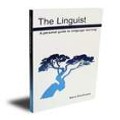Without going outside, you may know the whole world.
Without looking through the window, you may see the ways of heaven.
- Laozi It is always easiest to learn a language when you are living in a society that speaks that language if you take advantage of the opportunities that surround you. However, a new language in the real world can be difficult to understand. People may talk too quickly or use words that even the intermediate non-native speaker does not understand. You may feel hesitant in certain situations because you are not fluent. This can be stressful.
In these cases I have always found it useful to create my own world of language, a world of meaningful language content for me to listen to or read without pressure. Until I mastered Japanese, and even as I was living and working in Japanese, I still sought out advanced Japanese readers with meaningful content and vocabulary lists to read. I also listened repetitively to interesting tapes to gain greater confidence in using certain phrases and words.
I still listen to interesting material in languages that I speak fluently. I take advantage of time that is available while driving or exercising or doing chores around the house. There is an increasing availability of high quality audio books which can be easily enjoyed using the latest in portable listening technology.
Electronic texts are also more convenient than ever. This has great advantages for the learner. I regularly read newspapers and articles on the Internet and use online dictionaries and The Linguist system to increase my vocabulary in different languages.
In situations where you are studying a new language away from the native speaking environment, it becomes essential to create this personal language world. This is what I have done in Vancouver over the last twenty years as I sought to improve my knowledge of languages that I had been exposed to earlier but could not speak.

